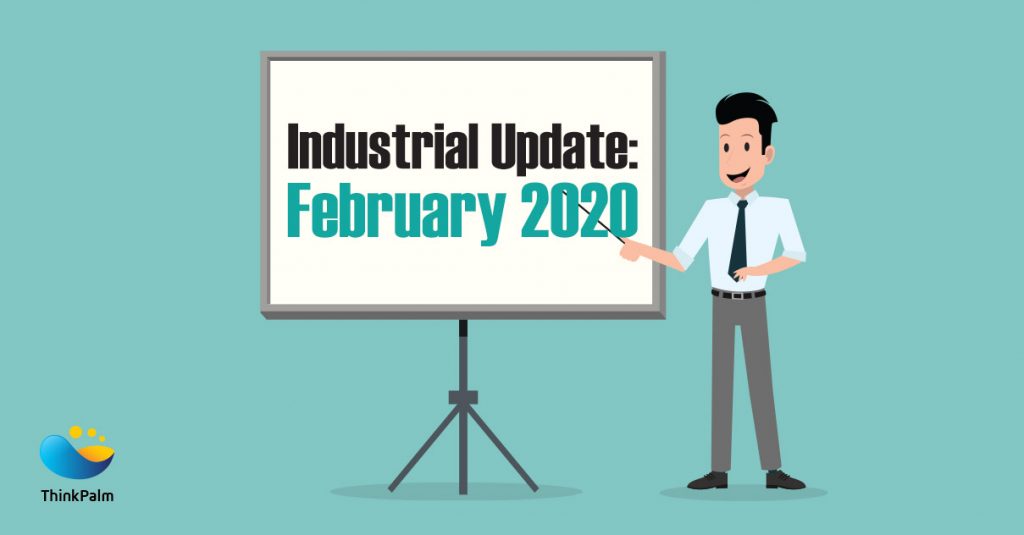It’s All About Last Month!

Morning March!!
Another month has come to an end and the incredibly warm month of March has just begun!
Eventhough, February is the shortest month of the year, there’s a lot that happened last month. If you’re wondering what were the latest industry news & updates that you missed last month; then here are some of the happenings that can keep you ahead of the curve.
In an endeavor to aid paramedics to respond more adequately to potential suicides in Australia, researchers from Monash University and Turning Point, a national addiction treatment centre, are using Artificial Intelligence to streamline how important ambulance data is filtered and categorized.
The AI project, which received a AU$1.2 million grant as a part of the 2019 Google AI Impact Challenge, uses a machine learning model that interprets a database of ambulance clinical records into sections like suicide attempts, suicidal ideation, and self-injury without suicidal intent.
During the project’s development, the two institutions gained access to mentors and tools from Google, in addition to international leaders across the fields of people-centred AI, which Monash University professor of Data Science and project lead Wray Buntine said “amplified our project’s overall impact”.
By 2027, global healthcare storage is predicted to control a collective market of a whopping $9 billion, up from $2.4 billion in 2018. Similarly, both Forrester and Gartner expect that a lot of providers will boost their technology budgets by nearly 10% within the years ahead. Healthcare is poised to become a more data-driven operation that offers better, more specific patient care at scale. Therefore, the rest of 2020 and further into 2021 will be determined by the duality of data security and data integration, and providers’ ability to perform on these priorities will, in many ways, determine their effectiveness.
Microsoft features a mission to enable everyone and organization across the planet to realize more. From a healthcare perspective, this suggests reimagining what’s possible and building technologies and creating synergistic partner ecosystems that allow us to realize those goals. Microsoft has broad ambitions and needs to deal with the most important challenges we face today in healthcare all across the world.
Despite the broad adoption of EHRs, healthcare data is still not truly interoperable and is often difficult for patients to access. However, with a rule pending from the Office of the National Coordinator for Health Information Technology, organizations are rethinking what is conceivable when data is aggregated onto a common secure platform, made accessible to patients and those who take care of them, analyzed using Artificial Intelligence and Machine Learning, and made actionable through collaboration and clinical decision-support tools. Therefore, Microsoft is looking to apply technology to directly address these issues.
Qualcomm features a replacement modem for next year’s 5G phones that aims to boost the standard speed on devices by aggregating differing types of wireless signals.
The company on Tuesday unveiled its Snapdragon X60 5G modem, which is made using process technology of 5 nanometers, or 5 billionths of a meter. That results in lower power consumption and a smaller footprint for even sleeker devices. Like its predecessor, the X55, the X60 will run on everything from 2G to 5G networks, and it will access the slower but more reliable sub-6 Ghz networks and thus the faster but spottier millimeter-wave networks.
Qualcomm also introduced new technology, called the Qualcomm ultraSAW filter technology, to enhance the facility of the wireless signal sent to a phone. frequency (RF) filters isolate radio signals from the various spectrum bands that phones use to receive and transmit information. Better filters mean higher performance and fewer power consumption
A recent study has applied AI for the first time to spontaneously and precisely measure blood flow in heart patients and its outcomes were found to be able to foretell chances of heart attack, stroke and death. By comparing the Artificial Intelligence generated blood flow results with the health outcomes of every patient, the team discovered that the patients with reduced blood flow were expected to possess adverse health outcomes including death. The calculations were happening as the subjects were being studied, and the outcomes were promptly passed to doctors. As poor blood flow is treatable, these better predictions ultimately lead to better patient care, as well as giving us new insights into how the heart works. The AI technique was therefore shown for the first time to be able to predict which patients might die or suffer major adverse events, better than a doctor could on their own with traditional approaches.
A self-driving vehicle has achieved a 230-mile drive along roads in Britain as part of a strategy supervised by researchers at the U.K.’s University of Leeds and automaker Nissan. The HumanDrive consortium’s Grand Drive initiative experimented with autonomous technology initiated during the autonomous drive to vary lanes, merge, and stop and start when expected, using human-like control systems developed at Leeds. Researchers had collected data on driver behavior through simulations at Leeds’ Virtuocity Center, which developers integrated into the autonomous driving system. Further simulation aided to refine the system to perform more natural driving, giving the researchers insights into how human-like and unique a driverless vehicle should function.